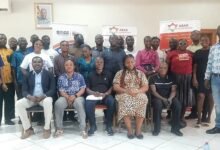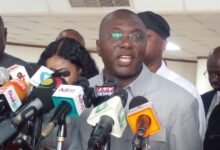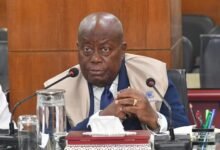
The Minister of Information, Kojo Oppong Nkrumah, has admitted that the phenomenon of attacks and intimidation of journalists is gaining notoriety in the country as data available to his outfit suggests that the trend of abuse on journalist was on the ascendency.
This is despite measures put in place by government to protect journalists in line with the UN’s 2012 Plan of Action on the safety of journalists which requires a multi-stakeholder approach, involving all the actors at the global and country level, to comprehensively prevent violence against journalists, protect them from danger, and prosecute the perpetrators.
Consequently, a Coordinated Mechanism on the Safety of Journalists was birthed and an office established to among other things train key actors to uphold the safety of journalists, investigate and validate reports of attacks on journalists and media, hold the security agencies and the judiciary to be accountable, and publish an annual report on the safety of journalists and efforts to punish attacks on them.
In a statement on the floor to update it on efforts to improve on the safety of journalists in Accra yesterday, Mr Oppong Nkrumah said the mechanism has not fared any better.
“The Coordinated Mechanism on the Safety of Journalists has chalked minimal success since its inception,” he said.
Under its advocacy function, Mr Oppong Nkrumah, MP, Ofoase/Ayirebi, said the office, having conducted a training sessions in 2019 for journalists in the Northern Region, the ministry has also been engaging the Judicial Service, advocating for severe punishment by the judiciary of persons who attack journalists and media houses.
Among others, the Information Minister said “in 2022 the ministry in collaboration with UNESCO, organised a three-day workshop with 25 judges on freedom of expression and safety of journalists in line with international norms and regional standards and in our opinion, it was useful”.
The report by the office, he said determined that the handling of Caleb Kudah, who was once mishandled by operatives of the National Security was “excessive and unprofessional”.
“The National Security Ministry accordingly dissolved the SWAT teams that operated under it and returned officers to their mother agencies.
“Other incidents of reported attacks on journalists have also been investigated by the office, with findings conveyed to security and prosecutorial agencies for action,” he said.
Under the function of accountability, the minister said “the mechanism has not been very successful”.
He said the need to hold the investigative, prosecutorial and judicial agencies accountable for the incidents reported to them, could not be over-emphasised.
“In some instances, the Ministry of Information has had to intervene and make direct reports to the Ghana Police Service as well as demand accountability on the investigation, prosecution, and punishment of perpetrators,” he told the House.
In a three-point request to realise the full benefits of the mechanism, Mr Oppong Nkrumah said it would be helpful for Parliament to assist in holding the agencies accountable for the incidents that have been reported to them.
In his view, closer collaboration among stakeholder groups in the public communications sector would be required as no single stakeholder group can successfully tackle this issue on its own.
More resources, he said, would be required for the NMC to succeed at implementing the mechanism.
The Member of Parliament for Ningo-Prampram and the deputy ranking on the Communication Committee, Sam Nartey George, commenting on the statement, decried Ghana’s gradual decline on the world press freedom index and pledged the minority’s support for the country to regain its top spot on the index.
BY JULIUS YAO PETETSI








